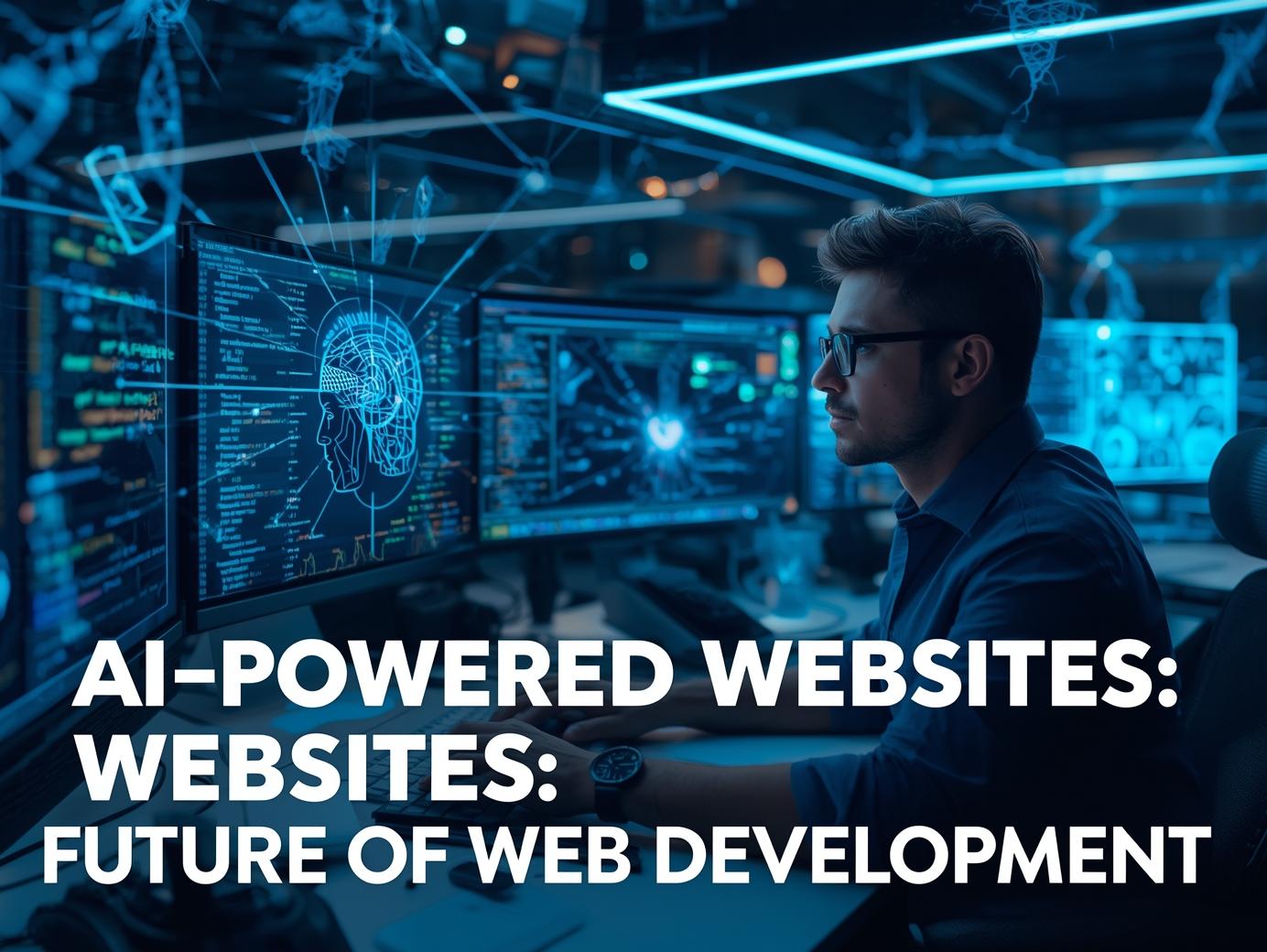The future of web development is being rewritten by AI-powered websites. Artificial Intelligence has moved from being a buzzword to becoming the foundation of how websites are designed, coded, optimized, and personalized. In 2025 and beyond, AI is transforming web development into a smarter, faster, and more user-centric process.
Let’s explore how AI-powered websites are shaping the next era of digital innovation.
1. Smarter and Faster Web Design
Gone are the days when developers spent weeks building a layout from scratch. With AI design tools like Wix ADI, Framer AI, and Durable, entire websites can be created in minutes. These tools analyze brand colors, content, and tone to generate stunning, functional designs that require minimal manual tweaking. The result is faster production and consistent branding.
2. Automated Code Generation
AI tools such as GitHub Copilot, ChatGPT Code Interpreter, and Replit Ghostwriter can now write and optimize code with minimal human input. They detect errors, suggest improvements, and even build web components automatically—making development faster, cleaner, and more efficient.
3. Predictive User Experience (UX)
AI doesn’t just build websites—it studies how people use them. By analyzing user data and click behavior, AI-powered websites predict what users want next and adapt the interface in real time. This leads to smoother navigation, personalized content, and higher engagement.
4. Natural Language Interfaces
Websites are becoming conversational. With voice and chatbot AI, users can now interact naturally—asking questions, booking appointments, or searching products using speech. This makes websites more accessible and user-friendly, especially on mobile and smart devices.
5. Visual Search and Image Recognition
AI image recognition lets users search by picture, not text. eCommerce sites can now identify products from uploaded photos, making shopping experiences faster and more intuitive. Giants like Google and Pinterest already use this; soon, smaller businesses will too.
6. AI-Driven Cybersecurity
Security is vital in web development. AI systems can detect and respond to cyber threats instantly. By learning from millions of attacks, they can recognize patterns and stop intrusions before they cause damage. This proactive defense makes AI-powered websites much safer than traditional ones.
7. Content Generation and Optimization
Tools such as Jasper, Surfer AI, and ChatGPT can now produce high-quality, SEO-optimized content in seconds. From blog posts to meta descriptions, AI ensures your website always has fresh, keyword-rich content that ranks better in search results.
8. Automated SEO and Analytics
Modern SEO tools powered by AI—like Rank Math AI, Yoast Content AI, and Alli AI—analyze your website’s data and provide real-time recommendations. They optimize titles, keywords, internal links, and even suggest improvements for readability and conversion rates.
9. Personalized Marketing Automation
AI makes digital marketing more precise. It tracks user journeys and triggers personalized offers, pop-ups, and chat messages based on behavior. For example, if someone leaves a product in the cart, AI can automatically send a reminder or discount code—boosting sales without manual effort.
10. Continuous Learning Websites
Unlike static sites, AI-powered websites evolve. They continuously analyze user behavior and performance metrics, then make automatic adjustments to improve speed, design, and conversion. The more they run, the smarter they become—creating a dynamic ecosystem that keeps improving over time.
The Future of Web Development
AI isn’t replacing web developers—it’s empowering them. Developers who embrace AI can work faster, build smarter, and focus on creativity instead of repetitive coding. Businesses that adopt AI-powered websites will lead the digital race by offering unmatched speed, personalization, and intelligence.
The future of web development is already here—and it’s powered by AI.
You may also read about How to Use ChatGPT, Gemini, and Copilot for Smarter Content Creation.
